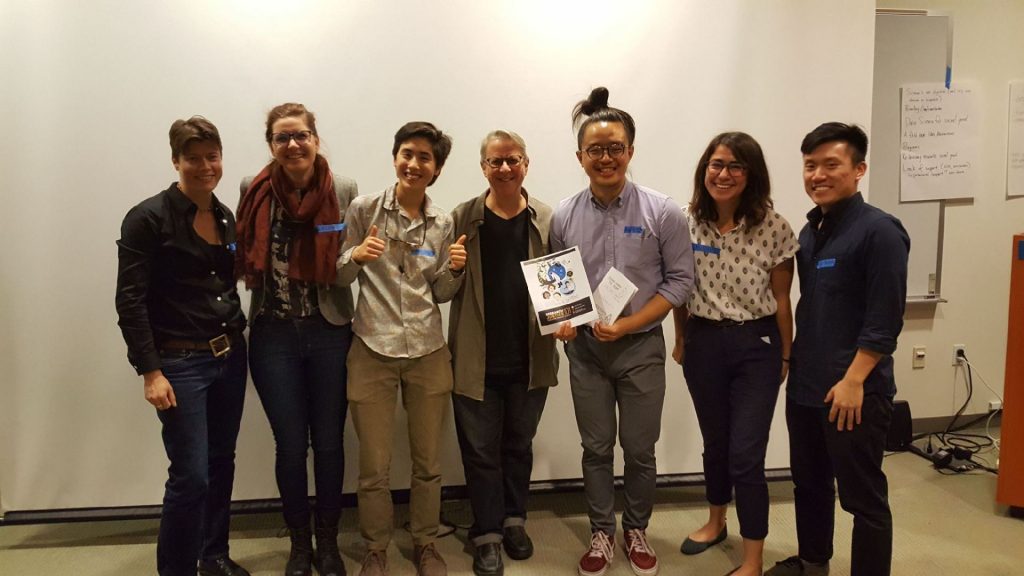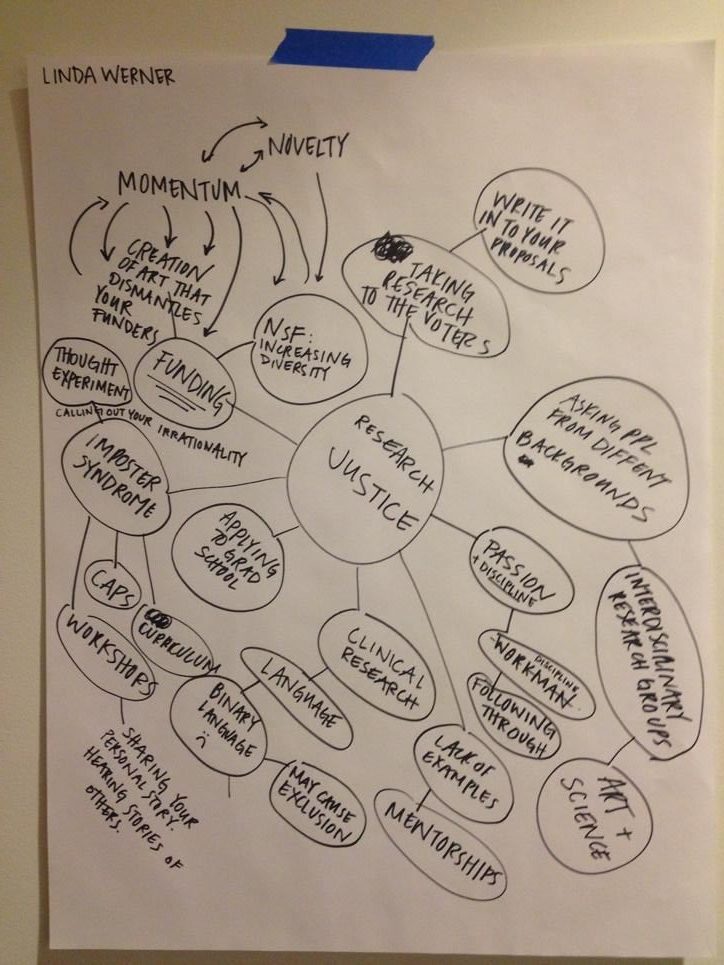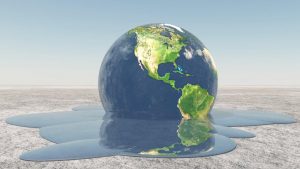Academic researchers across disciplines have long utilized animals, plants, rocks, and a range of non-human others, yet historically this research has been grounded in a foundational distinction between nature and culture, non-human and human. In this round table discussion with Laurie Palmer (UCSC Art) and Felicity Schaeffer (UCSC Feminist Studies), we will collaboratively discuss methodological approaches to research on and with animals, plants, rocks, and a range of non-human others with the hope of developing more concrete, nuanced vocabularies, engagements and practices. Participants are invited to submit brief works in progress in advance, which will serve as the foundation for the discussion. Palmer and Schaeffer will briefly discuss their theoretical interests as well as their methodological approaches to both the category of the non-human itself, as they define it, and non-human beings themselves. Subsequently, all participants will engage in a collaborative discussion around their experiences of, questions around, or hopes for engagement with nonhuman as subjects and collaborators. Rather than asking participants to present polished work, our intention is for the discussion to be a space in which to surface the questions and tensions that each of us grapples with in our scholarship.
To this round table, we invite decolonial and anticolonial thinkers and scholars who strive to work in deeply caring and collaborative ways across multiple boundaries, including but not limited to the boundaries of discipline, hierarchy, and anthropocentrically driven engagements. At the same time, we frame this discussion as one that acknowledges and engages with lived realities and histories of environmental violence and injustice of many peoples. Drawing on the theory of ethnographic refusal, as articulated by Audra Simpson, we seek to engage with folks who refuse to reproduce settler colonial violence on and with non-human others in their work. As Eve Tuck and Marcia McKenzie elaborate, a refusal is not only a no, but a redirection to ideas otherwise unacknowledged or unquestioned: “A generative stance situated in a critical understanding of settler colonialism and its regimes of representation.”*
We invite thinkers and scholars who insist on working in ways that actively build relationships, fostered through personal responsibility and collective accountability, to and with more than (but including) human beings. In so doing, we hope to hold decolonial, justice-oriented forms of engagements with more than human beings in every stage of our work.
Participants will submit a piece of work or work in progress by January 22, 2018, which will be circulated to their fellow participants for reading ahead of the workshop. We are looking for messy and promising provocations, not polished manuscripts. In addition, folks who work in the arts or who feel their methodological engagements may be best communicated in non-text forms are encouraged to participate. Finally, the discussion is not limited to research phases of our work. Rather, we also hope to (re)consider the products of our work (i.e., text-based literature, film, image, etc.). Vegan and vegetarian food will be provided.
To participate: please submit a 250-350-word abstract, and/or up to 2 pages of thought from a work in progress, about specific ways in which you (imagine and/or practice) methodological engagements with non-human kin and/or collaborators during in and all phases of your work, to nonhuman.workshop@gmail.com by January 22, 2018.
Convened by Science and Justice Training Program Fellows: Krisha Hernández (Anthropology, PhD candidate) and Vivian Underhill (Feminist Studies, PhD student). In collaboration with Taylor Wondergem (Feminist Studies, PhD student)
*Tuck, Eve and Marcia McKenzie. Place in Research: Theory, Methodology and Methods. P 148
Wednesday, February 07, 2018 | Humanities/Social Sciences, Room 359
Rapporteur Report
By: Taylor Wondergem
On February 7th, 2018, an interdisciplinary group of scholars gathered on UC Santa Cruz’ campus to discuss their methodological and theoretical engagements with nonhumans as research subjects, objects, and co-laborers. Organized by Krisha Hernández, Vivian Underhill, and Taylor Wondergem, the event included faculty panelists Laurie Palmer (Art) and Felicity Schaeffer (Feminist Studies) as well as 16 graduate student participants.
Dr. Palmer discussed her work on fracking in the Monterey Shale formation as a sculptor and visual artist of materiality and place. In thinking about how oil’s intractable embeddedness in some ways belies its extraction, she discussed her approach to focusing on formations – such as shale – that are not present to first-person sensory experience. Using data and images from geological productions, she raised questions around how scientists and scholars do, could, or should render the underground visible while attending to the violence of the illusion of transparency. Her discussion of the ways in which representations objectify and separate one from their object of representation – and how she engages with that dynamic – echoed other participants’ concerns around representations of a range of other nonhuman beings.
Dr. Schaeffer discussed her recent work engaging with Gloria Anzaldúa and recentering the role of spirituality as a deeply material way of knowing. Working beyond feminist science studies’ largely secular ways of thinking about matter, she asked questions around how to enact ways of knowing in ways that don’t reproduce Western frameworks. The audience asked how she defined the terms wild science, erotic science, and sacred science, and what work those terms did for her, and Dr. Schaeffer responded by situating the importance of calling knowledge science because of the power that those disciplinary boundaries hold.
Participants’ work centered around themes of disrupting settler colonialism, extraction and disaster in the Anthropocene, and similar questions of representation and intervention. One group of works centered around practices and values of care and relationality, and the discussion focused on questions raised about how ‘the other’ speaks when ‘speech’ is already problematic. Participants’ definitions of listening as methodology differed, depending on the genealogies of teachers and thought they draw on. Another group of works centered around methodological experimentation beyond writing as a mode of representation: for instance, photography, film, and wood cuttings. Participant Melody Overstreet’s artwork took up space in the room and affirmed the blur between multiple assumed boundaries, as she discussed her sense of quiet presence as method. Krisha Hernández rearticulated that for her, this sort of work is about relations and relationships, not embodying or speaking for more-than-humans.
Another cluster of works thought about the absences, impossibilities, and misrecognitions enacted by settler colonialism, late liberalism, and/or racial capitalism. Participants discussed the ways in which nonhuman and more than human beings relate and are intertwined within these frameworks, and a key point of discussion was on how to relate to/with the role that science and scientific discourse plays: the tensions around the legibility granted by scientific epistemologies to regulatory and other processes, but the exclusions and violences that it simultaneously enacts.



